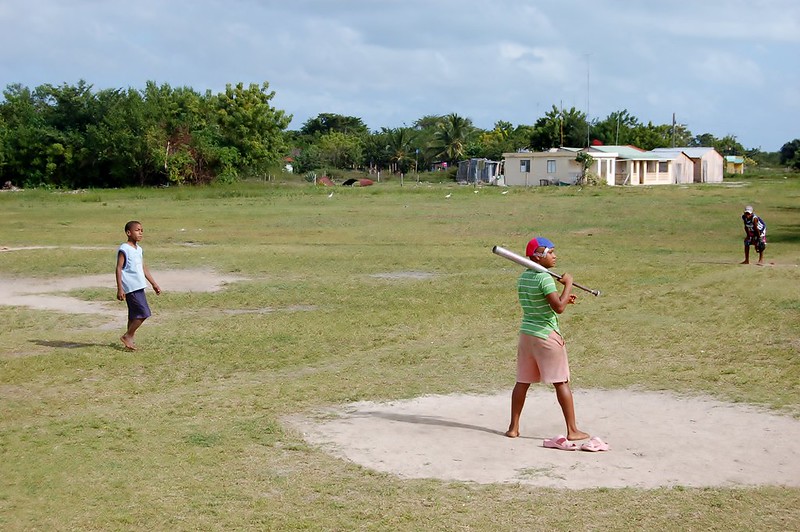Poverty and Baseball in the Dominican Republic
 Baseball is more than just a sport in the Dominican Republic; it’s a pivotal aspect of their culture. As of 2024, the Dominican Republic leads foreign nations in supplying Major League Baseball (MLB) with players, boasting 108 athletes on opening day rosters. Despite this cultural and economic contribution, the country still grapples with economic challenges. Over the past two decades, the Dominican Republic has experienced significant economic growth, yet more than 30% of its population continues to live in poverty.
Baseball is more than just a sport in the Dominican Republic; it’s a pivotal aspect of their culture. As of 2024, the Dominican Republic leads foreign nations in supplying Major League Baseball (MLB) with players, boasting 108 athletes on opening day rosters. Despite this cultural and economic contribution, the country still grapples with economic challenges. Over the past two decades, the Dominican Republic has experienced significant economic growth, yet more than 30% of its population continues to live in poverty.
Historical Context and Global Influence
Cuban visitors introduced baseball to the Dominican Republic at the end of the 19th century, establishing a rich tradition that thrives presently. The Dominican Winter League, renowned as one of the toughest in Latin America, reveals the nation’s deep connection to the sport. The Dominican Republic’s prominence was highlighted globally when it won the 2013 World Baseball Classic, with Yankees second baseman Robinson Cano earning the MVP title. President Luis Abinader has emphasized baseball’s integral role in the Dominican culture and economy, estimating its economic impact at about $400 million annually.
The Role of Baseball Academies
Baseball significantly boosts the Dominican Republic’s economy through academy investments, player salaries and job creation. The Dodgers pioneered this impact by establishing the first MLB academy in the country in 1987, offering children a structured environment to learn the game. Beyond skill development, these academies provide critical basic needs, such as consistent meals—luxuries not guaranteed at home. Players earn a decent living, with first-year players making $600 monthly and second-year players $700, significantly more than the $100 monthly factory job wage. While the academy system greatly aids those who never advance to major leagues, providing them with a sustainable income, it is not without its criticisms and challenges.
Educational Challenges and Opportunities
Only one in 40 players at baseball academies in the Dominican Republic reaches the major leagues. The rigorous training demands often sideline academic pursuits, leading critics to argue that these programs hinder complete educational attainment. Most academies focus on American and English studies, leaving players with limited knowledge about their own country. Among MLB teams, only the Diamondbacks provide opportunities for players to complete their education. It’s crucial to note that many of these youths might not have pursued schooling otherwise, potentially working in local industries like sugar cane fields, hotels or garment manufacturing. Despite these realities, there is a pressing need for MLB to enhance educational and career support for all academy players, ensuring a secure future whether or not they succeed in professional baseball.
Success Stories and Future Prospects
Juan Soto, a baseball superstar, signed a $1.5 million contract with the Nationals at just 16 years old and joined their Dominican Republic camp. There, he not only honed his baseball skills but also learned English, which Soto acknowledged could provide career opportunities beyond MLB. He later revisited this camp after being traded to the Yankees, reflecting on his journey and the impact of such training programs. Baseball has a profound connection to the Dominican Republic’s culture and economy, with its roots traced back to the late 19th century when introduced by Cuban visitors. Currently, the sport is celebrated nationally and supported by MLB academies that offer young players better living conditions and opportunities compared to other local employment, emphasizing baseball’s integral role in the country’s development.
Looking Ahead
Baseball’s role in the Dominican Republic extends beyond the game itself, deeply impacting the nation’s economy and culture. While MLB academies provide valuable opportunities for young athletes, there is a need to enhance educational support to ensure broader career prospects. By focusing on education alongside athletic training, the future of these young players can potentially be more secure, regardless of their success in professional baseball.
– Matthew Mendives
Matthew is based in Colonia, NJ, USA and focuses on World News and Celebs for The Borgen Project.
Photo: Flickr
